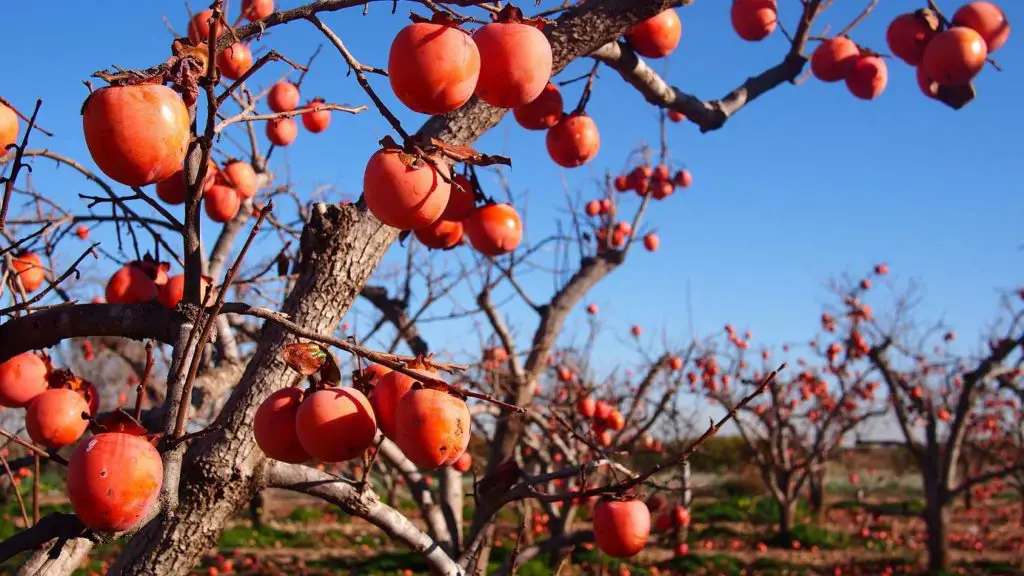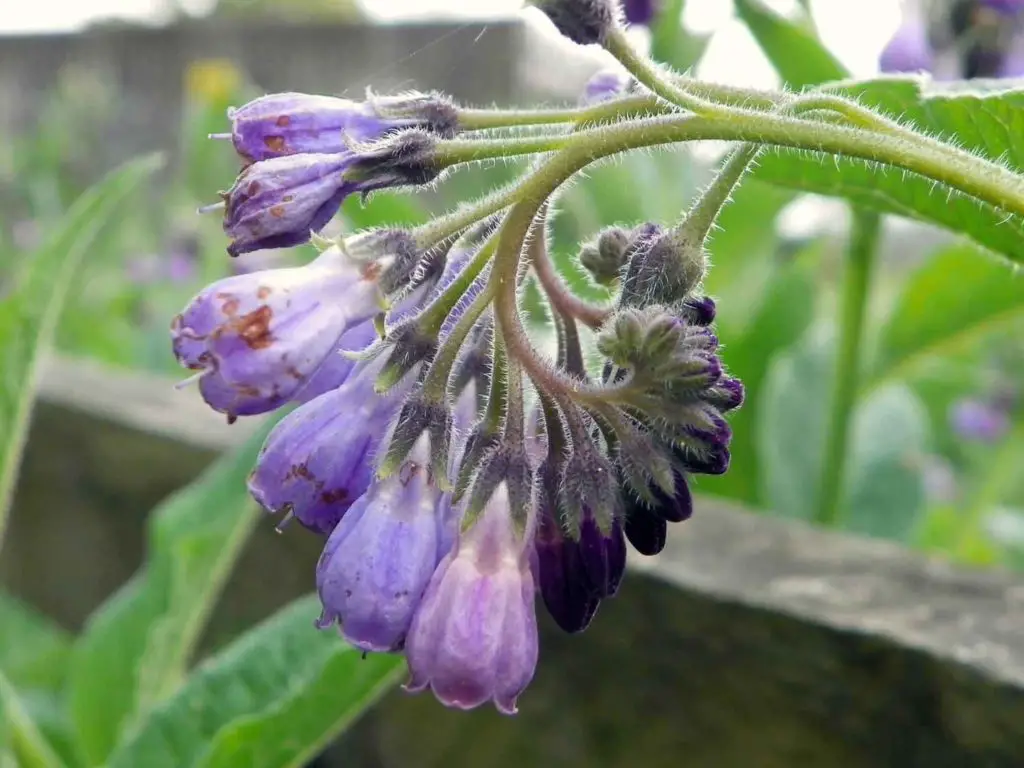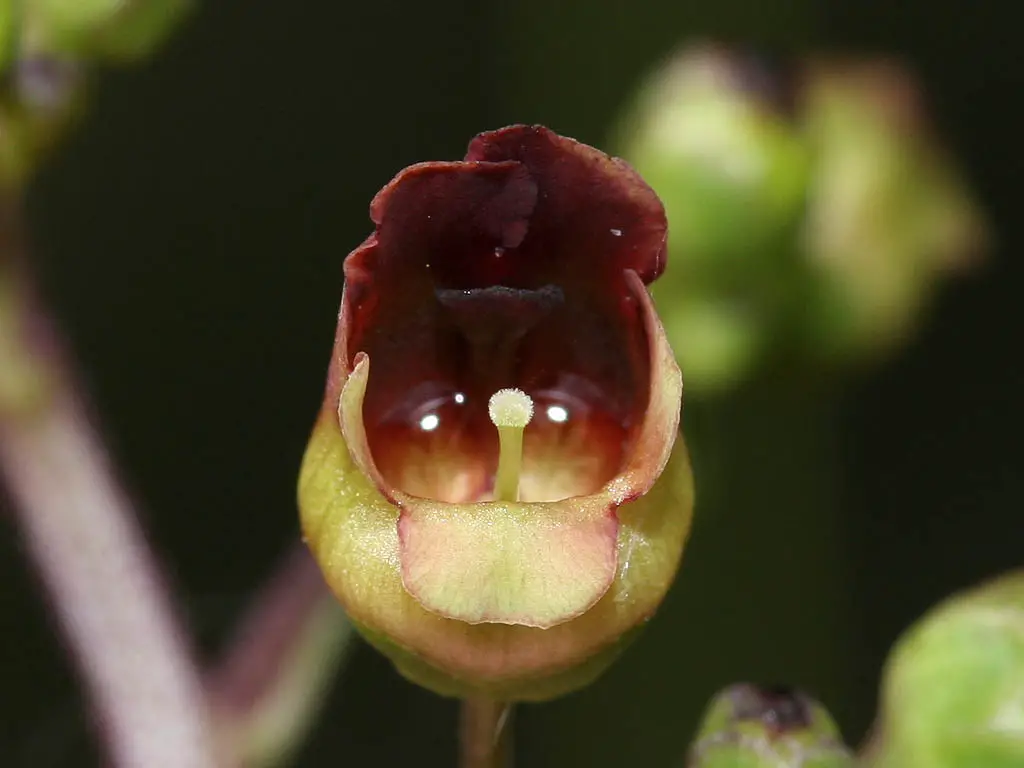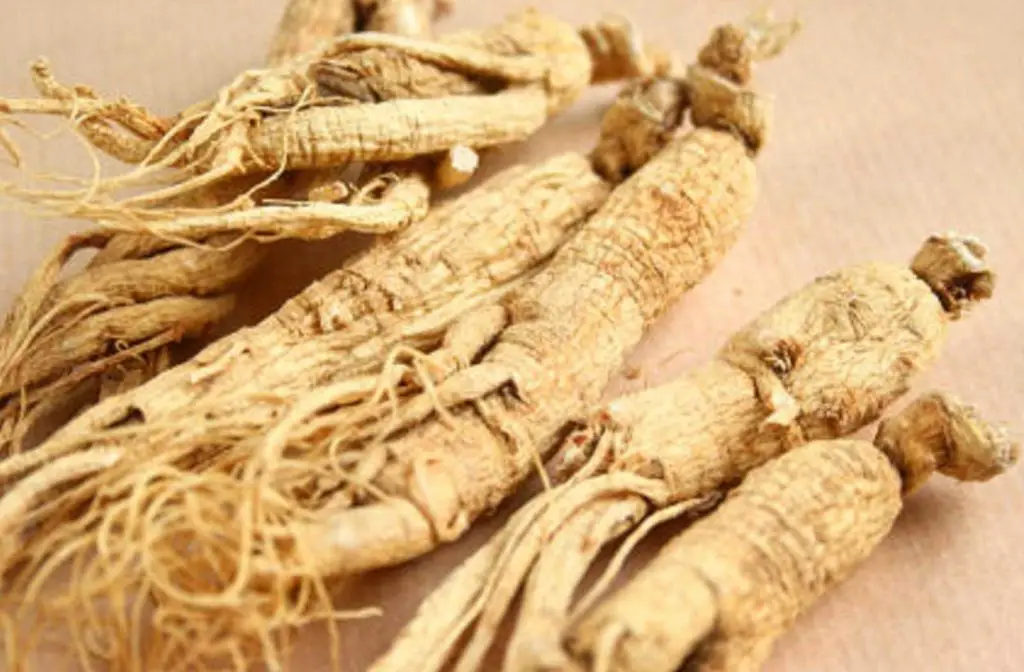What is Diospyros Kaki Fruit or Persimmon?
Diospyros kaki fruit, commonly known as Japanese Persimmon, is an edible fruit from East Asia. For centuries it has been grown in Japan, Korea, Burma, Nepal, and China. Today it is also produced in the temperate areas of the United States, South America, and the Mediterranean.
The Diospyros Kaki fruit tree is medium-sized and belongs to the Ebenaceae family. It has a rounded crown and grows to about fifty feet tall. In the spring, fragrant flowers blossom and the leaves come out yellowish-green. The leaves mature throughout the summer to a glossy green and then turn gold to red in fall.
The leaves of the Kaki tree are used in medicinal teas, as is the fruit. Historically it was said to solve headaches, back pains, and foot aches, but more recent scientific studies are demonstrating a whole host of benefits. Lately, it has been shown to have positive effects on diabetes, cancer, and respiratory health among others.
Interested in Persimmons? You might also find other super fruits interesting. Check out Maqui Berry, Longan (Dragon Eye) and Baobab.
Diospyros Kaki Fruit Benefits and Uses
Diabetes
The phytochemical composition of kaki peel has an antidiabetic effect. Dietary supplementation of persimmon peel has been shown to lower food consumption, blood glucose, plasma triglyceride, and total cholesterol levels in studies of diabetic rats. Persimmons can slow down the rate at which carbohydrates are digested and in turn, reduces the glycemic impact. Given the effects on blood glucose, caution is advised for individuals with type 2 diabetes.
Cancer
Anti-inflammatory and antioxidant properties of persimmons provide benefits to prevent cancer according to multiples studies. In a Portuguese study, scientists used cultured cell models to evaluate the phenolic extracts of persimmon in colorectal cancer. The persimmon extracts produced inflammatory and antiproliferative benefits. Other research proposes that aminoquinonoids could explain the tumor-inhibiting property in persimmon fruit. Persimmon is also a rich source of antioxidants such as Vitamin A, and C. These antioxidants can help prevent DNA damage by inducing apoptosis or programmed cell death of damaged cells. It is also high in fiber, which provides additional benefits to prevent cancer.
Anti-Inflammatory
Kaki Fruit is used as a natural painkiller because it contains a high amount of potassium and magnesium. Many medicines use potassium as a painkiller for muscle induced pain, which might explain the analgesic properties of persimmon fruit. Further investigations are needed to determine the analgesic bioactive compounds which are responsible for pharmacological effects in vivo and in vitro and mode of actions.
Cholesterol
Persimmon has been proven to lower cholesterol in human trials. A 2013 study published in the Annals of Nutrition & Metabolism showed that persimmon fiber reduced LDL cholesterol in 40 participants when taken three times a day for twelve weeks. Similarly, an animal study showed that eating persimmon decreased LDL cholesterol and triglycerides in rats.
Immune System
Persimmon fruit is rich in Vitamin C, and in fact, one raw persimmon fruit has approximately 80% of the daily requirement of this beneficial nutrient. Vitamin C helps to prevent the common cold, flu, and other infections. By eating persimmon regularly, you might prevent inflammation problems and infections. A study published in the journal PLoS in 2017 found that treating mice with persimmon-derived tannins decreased levels of several inflammation markers and increased the immune activity of white blood cells.
Eye Health
Persimmon also offers a benefit for the health of your eyes. It contains high levels of zeaxanthin, which is an essential dietary carotenoid that is linked to improved eye health. Zeaxanthin is also believed to prevent macular degeneration in the elderly. According to a Korean study from 2016, an ethanol extract of the Diospyros kaki was useful to treat corneal neovascularization (abnormal growth of new blood vessels in the eye) in rats. In the study, there was a significant difference in the level of vascularization between treated and untreated groups.
Respiratory
In traditional Chinese medicine, persimmons are cooked and used to treat asthma and lung diseases. Apart from the fruit, drinking tea from stems and leaves can also help relieve hiccoughs and coughing.
Hair
Persimmon fruit is rich in Vitamin C, which aids production of collagen and helps absorb iron. Vitamin C is one of the essential nutrients to help grow and strengthen hair since it helps build collagen. It also contains vitamin A, beta-carotene, lycopene and cryptoxanthin which act as antioxidants and protect your hair from harmful free radicals.
Weight Loss
Persimmon fruit helps people lose weight because of its high fiber content. Fiber helps you feel full and decreases your appetite, which helps reduce food intake through the day.
Energy
Persimmon juice is considered an excellent energizer due to its high potassium and sugar content. Also, persimmons contains B complex vitamins such as folic acid, pyridoxine, and thiamin, which improve metabolic activity throughout the body and increase your energy levels.
Antioxidant
Antioxidants are substances that reduce free radicals and prevent or delay oxidation of other molecules. Antioxidants are thought to protect against conditions like heart disease, cancer, and diabetes.
Kaki fruit is a rich reserve of flavonoid polyphenolic antioxidants such as catechins. Catechins have anti-inflammatory, anti-infective, and anti-hemorrhagic (stops bleeding from small blood vessels) qualities.
Stomach
Persimmon fruit is high in both soluble and insoluble fibers. Fiber is important because it improves digestion and bulks up the stool, so it can help people who struggle with constipation.
Liver
Persimmon has tannins which promote digestion and the acceleration of alcohol decomposition. Tannins are crucial in safeguarding cells from oxidative damage and help to detox the liver. Additionally, the vitamin C content can enhance liver function.
Skin
The antioxidant properties of Japanese persimmon and its high levels of vitamin C also make it a vital molecule for skin health. You can make a perfect homemade face mask using some flesh of this fruit, lemon juice, and yolk. Make a face pack out and leave it on for about 20 minutes before rinsing it off.
Menopause
Diospyros kaki in tea are a Japanese natural remedy for menopausal symptoms such as hot flashes and night sweats. It is thought that persimmon tea relieves vasomotor symptoms of menopause by improving blood circulation acting as a vasodilator.
Hemorrhoids
Persimmon is also known to be useful for treating hemorrhoids. Its astringent properties make it a favorite remedy for hemorrhoids in areas, where they grow in abundance. To eliminate hemorrhoids much faster eat dried persimmons that are steamed and eat them on an empty stomach every day.
Contraceptive
Historically, persimmon was used as a natural birth control method in Asian countries. However, modern medical evidence acknowledges that this particular usage of persimmons is merely folkloric and it is not an effective birth control method.
Which Persimmon is Best?
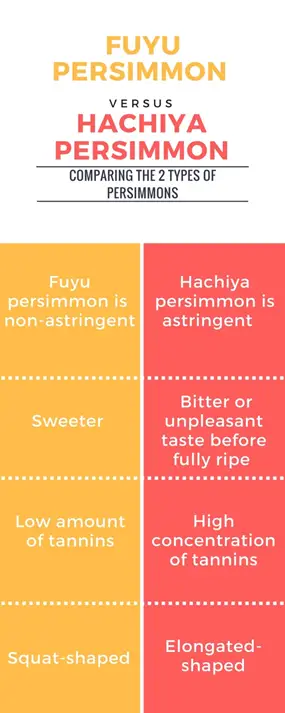
Fuyu Persimmons vs. Hachiya Persimmons
The two types of common persimmons are Fuyu persimmons and Hachiya persimmons. Fuyu permissions are non-astringent, squatter, and flatter. This type of persimmon can be eaten even if it’s not entirely ripe because of its low amount of tannins. Hachiya persimmons are astringent persimmon, taller, and more conical. They are astringent because of their high tannin count, which results in a bitter fruit if not ripe. Regardless of variety, persimmons have smooth, shiny, orange skin which is free of cracks or blemishes, with a flavor that’s sweet.
Diospyros Kaki Fruit Dosage
The dose for Diospyros kaki may be different for every person and depends on several factors such as the person’s age, health, and several other conditions. Supplements are not always safe for all people. Follow the directions on the product label and discuss the dosage with your doctor.
Diospyros Kaki Fruit Side Effects
Diospyros kaki may potentially lower blood pressure and can possibly interfere with medical blood pressure treatment. Some doctors caution that persimmon may interact with blood pressure controls during and following invasive medical procedures. Persimmon consumption should be stopped at least two weeks prior to a scheduled medical procedure.
Diospyros Kaki Contraindications and Warnings
Diospyros kaki are considered mostly safe for consumption, but there is not enough information to claim it is safe for medicinal use. Pregnant and breastfeeding mothers are advised to avoid use. Persimmon fruit can also trigger an allergic reaction in some people. It is rare, but if you experience itching, swelling or hives, you should discontinue use immediately and talk to your doctor right away.
Persimmons may also lower blood pressure. It is advised not to consume it if you are taking medications for high blood pressure as it might cause hypotension (abnormally low blood pressure). Be cautious with this combination and check with your doctor.
Frequently Asked Questions (FAQ)
How to eat a Kaki Fruit or Japanese Persimmon?
Diospyros kaki can be eaten fresh, dried, raw, or cooked. In China, Israel, and California, the fruits are sometimes dried and eaten as a high-energy snack. The fruit is also often made into molasses, cider, or wine. When eating an astringent persimmon, it is better to cut them in half and spoon out the flesh or use them in compotes. For non-astringent persimmons like fresh Fuyu, eat it like an apple, but don’t eat the seeds in the center.
What does a Persimmon taste like?
Hachiya persimmon can have an unpleasant taste if consumed before they are fully ripe and you should allow them to ripen (the fruits are entirely soft and pulpy). Once ripened they have sweet flavor. On the other hand, non-astringent persimmons are sweeter and can be eaten while barely ripe.
How do I grow a Persimmon?
You can grow persimmon from seeds, cuttings, suckers or grafts. Persimmon seeds germinate best when fresh (don’t let the seeds dry out), so gather them in autumn. Take seeds only from fully ripe persimmons without bird pecks or rotten spots. Sprout the seeds right where you want your persimmon to grow. Plant them in fall or winter, no more than two inches deep in the soil and set the pots in a warm location. The seeds won’t germinate until late spring. Water them whenever there is little rainfall, but don’t fertilize the tree unless it is not thriving.
How do I tell when a Persimmon is ripe?
You can tell persimmons are ripe when they are soft and have an almost-translucent look to them. The fruit will ripen to yellow, orange, or reddish orange.
When is the best time to pick a Persimmon?
Harvest astringent persimmons when they are soft and heavy. If they drop, you can wash them off and allow them to ripen fully. To ripen, you can leave the fruits on the counter for several days at room temperature. They are ready to eat when they look like little orange pumpkins and are very soft. Non-astringent types of persimmon are ready to harvest when they turn orange, and you can eat them while they are still firm. Regardless of the type, when you are picking a persimmon, look for characteristics similar to those of a ripe tomato.
What does a Persimmon look like?
Persimmons are round or oval, smooth textured fruit. They are often golden yellow and share a close resemblance to tomatoes in appearance.
What Vitamins are in a Persimmon?
Amounts per one Japanese persimmon fruit raw
- 2,733 international IU
- Vitamin C 6 mg
- Vitamin E 2 mg
- Vitamin K 4 mg
- Vitamin B6 2 mg
- Potassium 270 mg
- Phosphorus 28.6 mg
- Calcium 13.4 mg
- Magnesium 15.1 mg
References:
https://www.ncbi.nlm.nih.gov/pmc/articles/PMC4817420/
https://www.ncbi.nlm.nih.gov/pubmed/19382348
https://www.ncbi.nlm.nih.gov/pubmed/24178455
https://www.ncbi.nlm.nih.gov/pubmed/12748986

